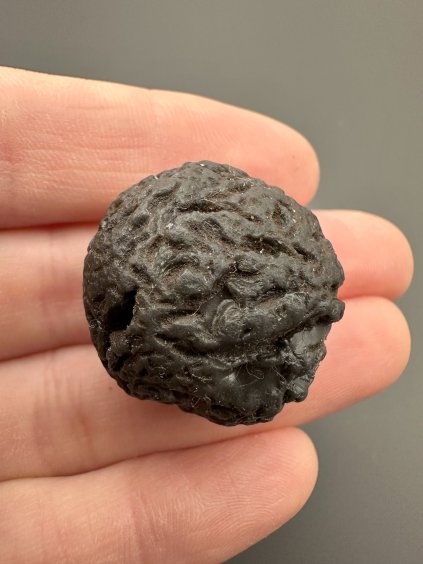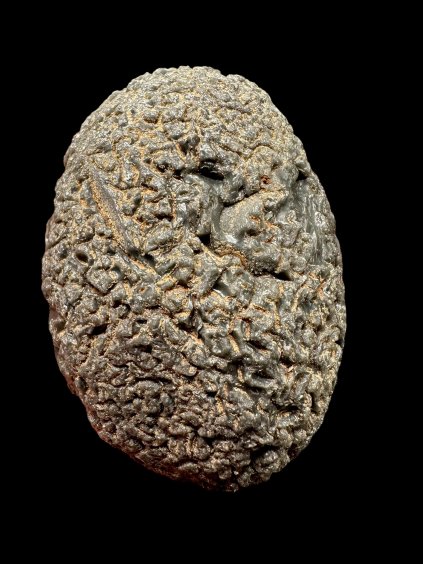Dragonglass Obsidian
Its perfect round shape and colour variations make it the ultimate collector’s item among obsidians. It is one of a very few European nodule obsidians with a deep structure and the only one that resembles the dragon eggs from the TV series “Game of Thrones” and “House of the Dragon”. Thats why everyone who sees it calls it “Dragonglass”.
#Showmore#
Characteristics:
The colour, texture and shape are as follows: It is, at first glance, unmistakably similar to tektite. The colour banding and degree of crystallinity vary, with the obsidian coming in dark olive green, grey, or black hues and boasting a lustrous quality. Dragonglass Obsidian has a pronounced deep structure and is not translucent due to the darkness of the glass. The Dragonglass Obsidian is round, egg- or teardrop-shaped. The average weight is 40 grams, and nodular obsidian has only been found in a few places outside of Europe, which makes it all the more special. These includes obsidians in Indonesia (Agni Manitite), USA (Saffordite and Apache Tears Obsidian), Peru (Macusanite), Colombia (Calitite), Nicaragua (Marekanite), Azerbaijan, and China.
History:
The Dragonglass Obsidian comes from Milos Island in Greece. The submarine lava dome originates from an underwater volcano and is estimated to be 1.5 million years old. At the dawn of the Neolithic age, circa 8000 BC, obsidian mining and trading began on Milos. Tools, small knives and arrowheads made of Milos’ obsidian have been found in Crete, Egypt and elsewhere. A rare and unique opportunity: Milos is rich in obsidian, but it mostly consists of obsidian flakes (broken glass fragments). Of these, only about 1% are structured and round obsidian. And of that 1%, only 1% are undamaged, making them extremely rare. What also makes these pieces a unique and highly sought-after opportunity with high appreciation potential is the fact that pearlite mining will soon begin at the site, leading to their future unavailability.








.png?67eda4a9)



.png?67eda7ad)







